Russian Oreshnik ballistic missiles hit the Dnipro region on November 21.
On November 22, Russian President Vladimir Putin said in a statement that the country's military had for the first time used Oreshnik ballistic missiles to attack Ukrainian military targets in the Dnipro region.
The Russian leader also emphasized that this was a response to Ukraine's use of long-range missiles provided by the West to attack Russian territory.
Russian President Putin also reaffirmed that Ukraine's use of long-range missiles to attack Russian territory will not affect the goals of the special military operation. He stressed that illusions about forcing Russia to stop its military operations will not succeed.
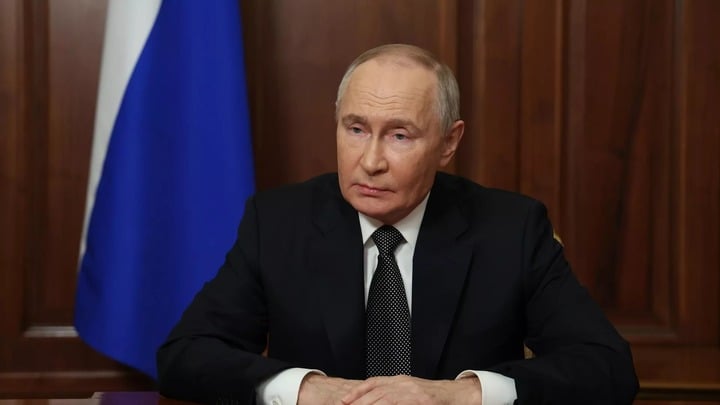
Russian President Putin's message on the use of Oreshnik ballistic missiles in Ukraine. (Photo: Sputnik)
Russia's response
Commenting on Russia's actions, former US intelligence expert Larry Johnson said that the recent missile attack on the city of Dnipro was not only President Putin's way of responding to Kiev but also a message to the West and the US.
According to Mr. Johnson, the Oreshnik missile is the answer to the US unilaterally canceling the Intermediate-Range Nuclear Forces Treaty (INF).
“The fact is that the US unilaterally canceled the INF Treaty. I think Mr. Putin sent a warning to Washington and the West that without the INF, we will show you what Russia has,” said expert Johnson.
The attack on Dnipro showed that Russia has developed both short- and medium-range ballistic missiles capable of carrying MIRV reentry vehicles capable of hitting multiple targets with a single missile, Mr. Johnson said.
American intelligence experts analyzed that the Oreshnik warhead moves at supersonic speed and no Western air defense system can intercept it.
Also according to President Putin's statement, Oreshnik is still in the testing phase and there is nothing better than using them directly in the field.
Mr. Putin explained that modern air defense systems cannot intercept the Oreshnik missile, which attacks its target at a speed of Mach 10 - about 12,300 km/h.
“Russia’s destruction of a Ukrainian military facility in Dnipro has sent a very clear message to the West that more such attacks are likely. It remains to be seen whether the West will back down or be prepared to escalate further,” Mr. Johnson concluded.
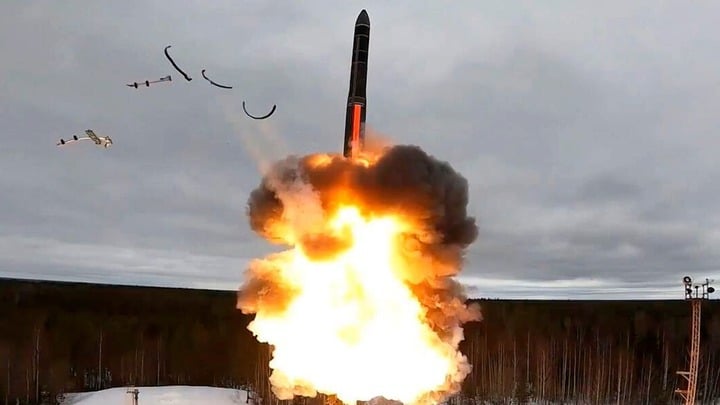
The November 21 attack was just the beginning of Russia's response to Ukraine and the West.
The West was surprised?
On November 21, the Ukrainian air force accused Russia of attacking businesses and critical infrastructure in the city of Dnipro with an intercontinental ballistic missile (ICBM), a Kinzhal hypersonic missile and seven Kh-101 long-range cruise missiles.
"Air defense units shot down six Kh-101 missiles. Other missiles did not cause significant damage. There is no information about casualties yet," the agency said.
Ukrainian President Volodymyr Zelensky later declared that "all parameters such as the speed and altitude of the warhead match that of an ICBM".
British, French and European Union (EU) officials said they could not verify the information provided by Ukraine.
According to Pentagon Deputy Press Secretary Sabrina Singh, the Russian missile used in Dnipro was a new, experimental medium-range missile based on the country's RS-26 Rubezh intercontinental ballistic missile.
“This is a new type of lethal weapon being deployed on the battlefield, so that is certainly a concern,” Singh said, noting that the missile could carry either a conventional or nuclear warhead. She said the United States had been notified of the launch in advance through nuclear risk reduction channels.
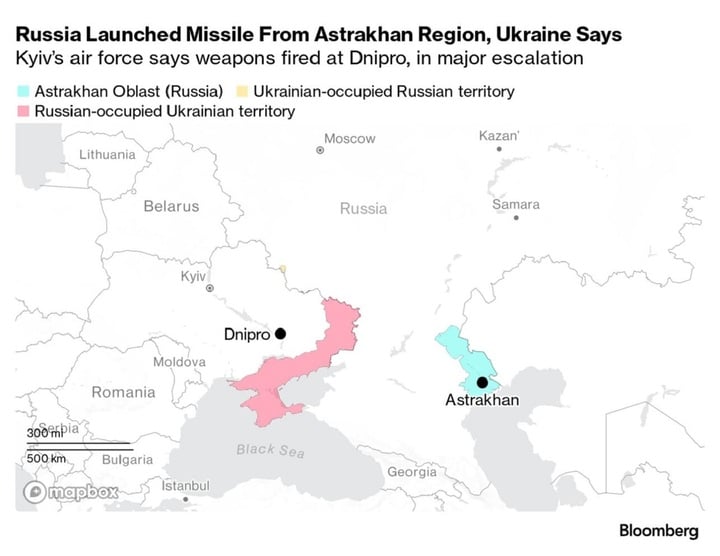
The Russian Oreshnik missile launch site from the Astrakhan region is more than 1,000 km from the target in Dnipro. (Photo: Bloomberg)
Commenting on the incident, Kremlin spokesman Dmitry Peskov said Russia did not intend to warn the US about the new missile launch, as it was not obliged to do so. But then the tactic changed and said Moscow gave a 30-minute warning before the launch.
There is currently no information that the US and its Western allies knew about the Oreshnik missile in advance. This shows that it was kept absolutely secret by Russia during its development.
Russia's surprise attack on Dnipro took place in the context of Russia changing its nuclear doctrine. In determining that nuclear weapons are only defensive in nature, their use is a "compulsory and last resort" to protect Russia's sovereignty and territorial integrity when attacked by an external enemy.
This seems to imply that Russia is fully capable of using nuclear weapons in response to attacks carried out by Ukraine with the support of the US and its allies, if it considers it a "serious threat to its territorial sovereignty". At the same time, the response could target both Ukrainian facilities and supporting countries, according to analysts.
Source: https://vtcnews.vn/dap-tra-bang-ten-lua-oreshnik-tong-thong-nga-putin-khien-phuong-tay-chao-dao-ar908974.html



![[Photo] Prime Minister Pham Minh Chinh starts construction of vital highway through Thai Binh and Nam Dinh](https://vphoto.vietnam.vn/thumb/1200x675/vietnam/resource/IMAGE/2025/5/12/52d98584ccea4c8dbf7c7f7484433af5)

![[Photo] Buddha's Birthday 2025: Honoring the message of love, wisdom, and tolerance](https://vphoto.vietnam.vn/thumb/1200x675/vietnam/resource/IMAGE/2025/5/12/8cd2a70beb264374b41fc5d36add6c3d)






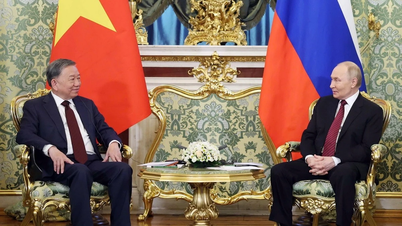
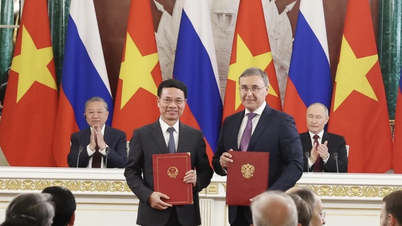
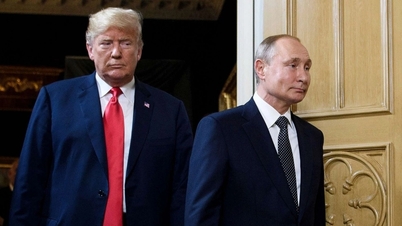






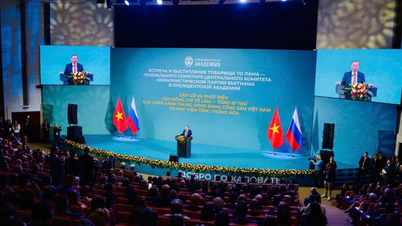











![[Photo] General Secretary To Lam meets and expresses gratitude to Vietnam's Belarusian friends](https://vphoto.vietnam.vn/thumb/1200x675/vietnam/resource/IMAGE/2025/5/11/c515ee2054c54a87aa8a7cb520f2fa6e)















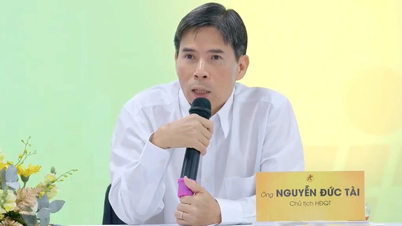





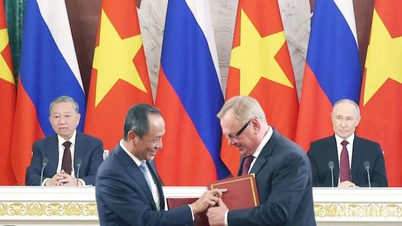









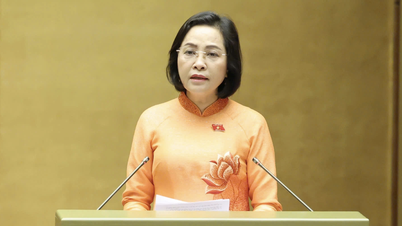






























Comment (0)